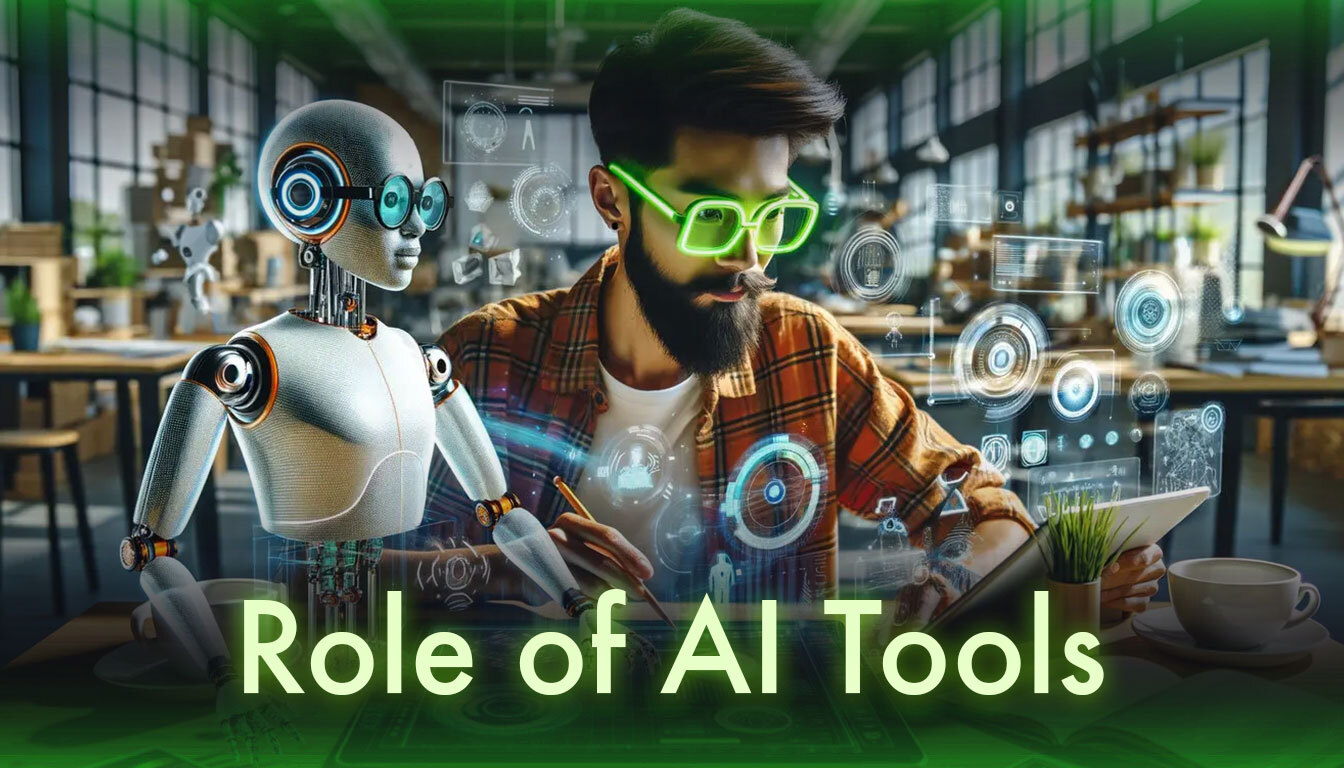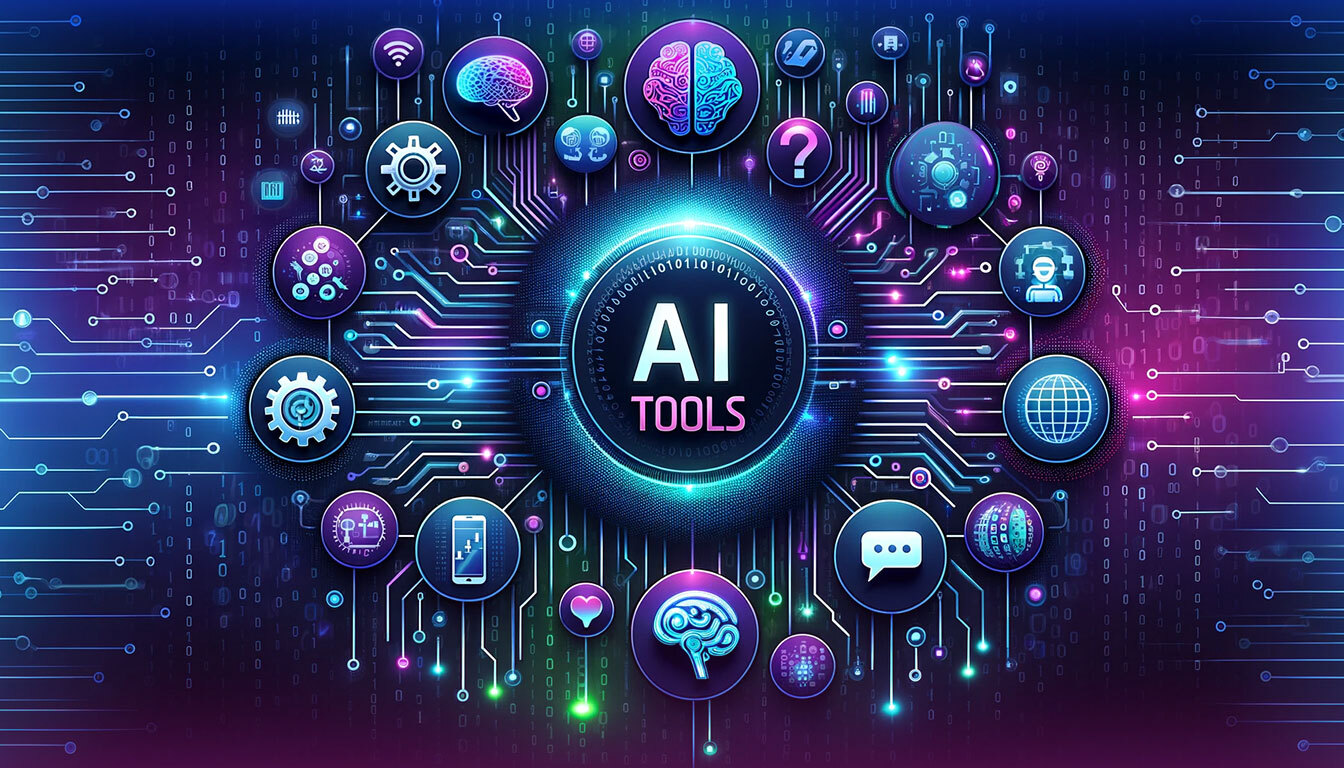
The Role of AI Tools in Personalizing Customer Experiences
Getting Started
In the ever-evolving landscape of digital marketing, one thing has become abundantly clear: personalized customer experiences are no longer a luxury, but a necessity. Customers today, expect a seamless and personalized experience across every touchpoint with your brand. To truly stand out in a crowded marketplace, businesses need to leverage the power of Artificial Intelligence (AI) to personalize customer experiences.
Artificial intelligence (AI) tools have emerged as powerful solutions to help businesses provide highly tailored and individualized customer interactions. By leveraging AI tools for customer personalization, companies can foster deeper relationships with their audiences, drive engagement, and ultimately boost their bottom line.
This blog post, inspired by Amit Jadhav's expertise in digital marketing, explores the transformative role of AI tools in crafting hyper-personalized customer journeys. We will delve into how AI personalizes experiences, the benefits it offers, and explore some of the best AI tools for personalization available today.
Understanding the Role of AI in Customer Experience
Artificial intelligence in customer experience is reshaping how brands interact with their customers. AI allows businesses to move beyond generic, one-size-fits-all strategies and adopt personalized marketing with AI that delivers relevant content and recommendations to each user. AI tools, powered by machine learning and predictive analytics, gather and analyze vast amounts of data, offering valuable insights into customer behavior and preferences.
By understanding individual customer needs, businesses can enhance every aspect of the customer journey. From tailored recommendations to AI-powered customer support, the technology enables AI-driven customer engagement, ensuring that every interaction feels relevant and valuable. The ability to predict and personalize content has made AI tools for business growth indispensable in today’s competitive market.
How AI Improves Customer Experience
By analyzing customer data, AI tools can create a rich profile of each customer, understanding their unique preferences, needs, and pain points.
AI tools have revolutionized how companies approach customer experience enhancement. Here are some ways AI is improving the overall customer experience:
- Understanding Customer Preferences: AI can segment customers based on their age, gender and income, purchase history, and online behavior. This allows for targeted marketing messages, product recommendations, and offers tailored to each customer's specific interests. This is known as hyper-personalization. AI enables businesses to gather customer data in real-time and analyze it for deeper insights. This allows brands to deliver hyper-personalized experiences, where content, offers, and recommendations are tailored to an individual’s behavior, preferences, and past interactions.
- Predicting Customer Behavior: AI-powered predictive analytics can anticipate what products or services a customer might be interested in. This enables businesses to proactively reach out with personalized recommendations, increasing the chances of conversion.
- Providing Real-Time Support: AI-powered chatbots can offer 24/7 customer support, answering questions and resolving issues in real-time.
- Creating Personalized Content: Generative AI is revolutionizing content marketing by creating personalized content such as blog posts, articles, and email newsletters. This content can be tailored to individual customer interests and needs, enhancing engagement and driving conversions.
Benefits of AI for Customer Personalization
By implementing AI for customer personalization, businesses can reap a multitude of benefits:
- Increased Customer Satisfaction: When customers feel understood and valued by businesses catering to their individual needs, their satisfaction naturally increases.
- Improved Customer Loyalty: Personalized experiences create a sense of connection between customer and brand, leading to stronger relationships and increased customer loyalty.
- Boosted Revenue: Precise targeting with AI-driven recommendations translates to higher conversion rates and ultimately, increased revenue growth.
- Reduced Costs: AI can automate tasks like personalized marketing campaigns and customer service interactions, freeing up human resources and reducing operational costs.
To know more about AI in customer service, you can go through our comprehensive blog post, AI in Customer Service!
Best AI Tools for Personalization

To help businesses unlock the full potential of AI in personalized marketing, there are several best AI tools for personalization available today. These tools use machine learning algorithms and data analytics to deliver tailored experiences to customers. Below given are few of the AI tools for personalization:-
- AI Tools for eCommerce Personalization: For eCommerce businesses, tools like Dynamic Yield and Nosto allow companies to personalize product recommendations, offers, and content based on user data. These platforms use AI to analyze browsing behaviors, previous purchases, and customer preferences to optimize the shopping experience.
- Customer Relationship Management (CRM) software with AI capabilities: These CRMs leverage AI to analyze customer data and generate insights that can be used for personalized marketing and support.
- Generative AI for Personalized Content: Generative AI in marketing plays a vital role in creating personalized content at scale. Tools like Copy.ai and Jasper can generate highly relevant and customized content for blogs, email campaigns, and social media posts, reducing the need for manual content creation.
- Recommendation Engines: AI-powered recommendation engines analyze customer data to suggest relevant products, services, or content.
- AI in Marketing Automation: Platforms like HubSpot and Marketo offer AI-driven marketing automation that helps businesses create personalized email campaigns, lead nurturing sequences, and automated follow-ups. These tools use AI to segment audiences based on behavior, ensuring that the right message reaches the right person at the right time.
- Content Personalization Platforms: These platforms allow businesses to create dynamic content that adapts to different user profiles. This can include personalized website experiences, email greetings, and product descriptions.
- Chatbots for Customer Engagement: AI-driven chatbots, such as those powered by Drift or Intercom, provide 24/7 customer support and instant engagement. These chatbots can personalize conversations based on the customer’s past interactions, making them feel heard and valued. Additionally, chatbots can collect valuable customer data, further enhancing personalization strategies.
- Leveraging Data for Smarter Decisions: Through advanced analytics, AI tools provide actionable insights that help marketers optimize campaigns, allocate budgets efficiently, and increase ROI from AI investments. Businesses can track customer satisfaction metrics, engagement rates, and market trend analysis to adjust strategies in real time.
- AI-Powered Sales Forecasting: AI-powered sales forecasting tools can predict future sales trends based on historical data and market conditions. These forecasts help businesses plan their resources and marketing efforts more effectively, ensuring they are always ahead of the curve in a fast-paced market.
- AI Tools for CRM: Customer Relationship Management (CRM) platforms, like Salesforce Einstein, use AI to offer a 360-degree view of customer interactions. By analyzing customer data, AI can help companies predict customer needs, improve retention, and drive conversions.
Remember, the "best" AI tool depends on your specific business needs and goals. Consulting with an expert like Amit Jadhav or joining his online digital marketing video course - “Digital Growth Accelerator System” (DGAS), can help you identify the solution that best matches with your strategies for digital marketing.
How AI Tools Drive Business Growth
AI tools not only enhance customer experiences but also fuel business growth. By implementing AI tools for business growth, companies can streamline operations, optimize marketing strategies, and improve decision-making processes.
AI Strategies for Personalized Marketing
For businesses looking to integrate AI into their marketing strategies, it’s essential to focus on key areas that can drive personalization and customer satisfaction. Here are some AI strategies for personalized marketing:
- Automating Content Creation: Content generation with AI enables businesses to create personalized content at scale. By utilizing tools like AI-powered writing assistants, brands can produce blog posts, social media content, and email newsletters that speak directly to the unique needs of each customer.
- Customer Segmentation: AI tools can segment customers into distinct groups based on behavior, demographics, and purchase history. This segmentation enables businesses to tailor their messaging and promotions, increasing the likelihood of conversions.
- AI in Social Selling: AI tools are also transforming social selling workshops. Through platforms like Hootsuite Insights, businesses can track customer sentiment and engagement across social media, allowing for more targeted and relevant outreach. By understanding customer preferences on social platforms, brands can improve their engagement and create personalized experiences.
- Predictive Analytics for Retention: Using predictive analytics, AI can forecast which customers are most likely to churn. By identifying at-risk customers, businesses can intervene with personalized offers or messages to increase retention rates.
Ethical Considerations in AI-Powered Personalization
While AI offers immense potential, it's crucial to use it ethically and responsibly. There are some key ethical considerations in AI-powered personalization:
- Data Privacy and Security: Ensure that customer data is handled securely and in compliance with relevant regulations like GDPR and CCPA.
- Transparency: Be transparent about your use of AI and how it benefits customers. Avoid creating a sense of surveillance or manipulation.
- Bias Mitigation: Train your AI models on diverse and representative data to minimize biases and ensure fair treatment of all customers.
- Human Oversight: Maintain human oversight to ensure that AI decisions are aligned with ethical principles and business objectives.
Final Thought
As customer expectations continue to rise, the need for personalization in marketing has never been greater. AI tools for customer personalization are transforming the way businesses engage with their audiences, offering deep insights into customer preferences, behaviors, and needs. By adopting AI-driven customer engagement and implementing predictive analytics and generative AI for personalized content, businesses can not only enhance their customer experience but also drive sustainable growth.
For businesses looking to stay ahead of the curve, adopting AI-powered customer insights and AI in marketing automation is a game-changer. Tools like those offered in the Digital Growth Accelerator System (DGAS) by Amit Jadhav can help entrepreneurs leverage AI to drive both personalized marketing and business growth. By investing in AI tools for business and adopting a data-driven strategy, companies can build stronger, more personalized relationships with their customers, ensuring long-term success.
If you're ready to explore how AI can transform your business, consider Amit Jadhav’s advanced digital marketing course and online course for entrepreneurs to unlock the potential of AI tools and digital marketing strategies.
Amit Jadhav has designed an ultimate lead generation course. This is an online digital marketing video course known as Digital Growth Accelerator System (DGAS).
Sign up or for more details, just click on the link - https://www.amitjadhav.com/dgas/.
- Amit Jadhav
www.amitjadhav.com
